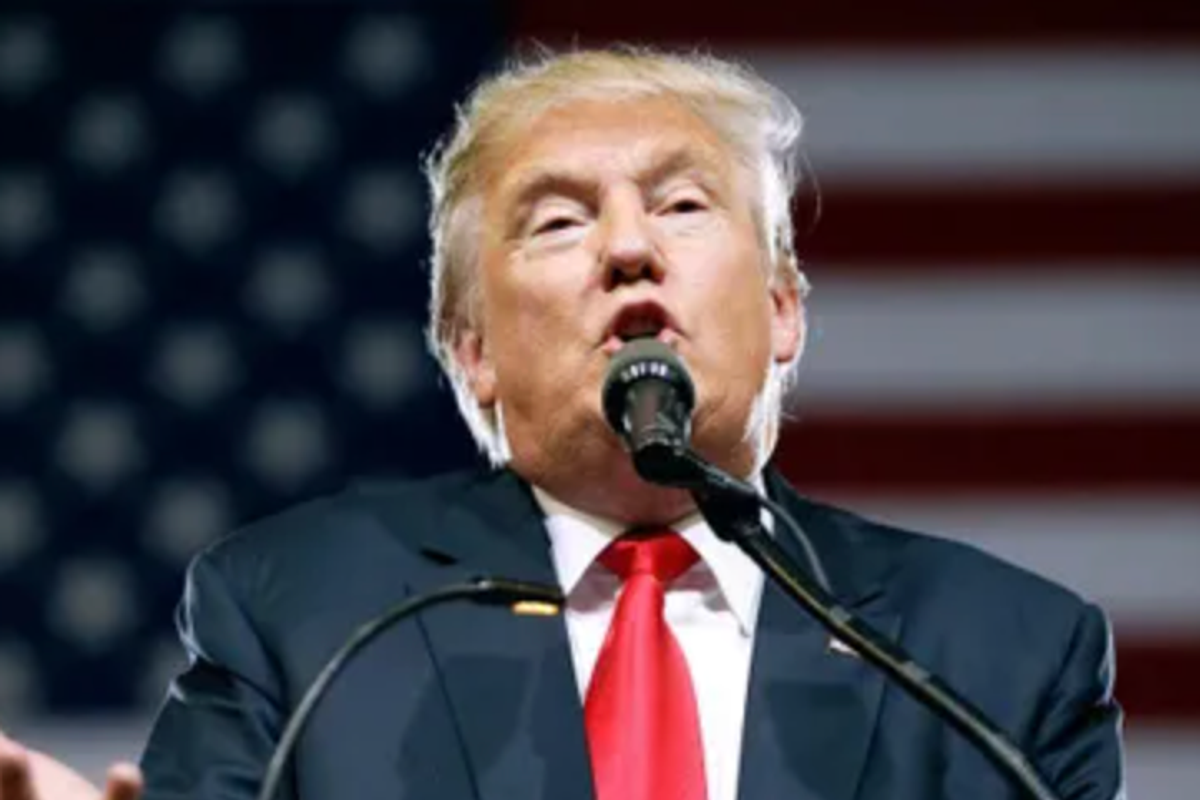One Big Problem With Trumponomics: The President Can't Do Arithmetic

President Donald Trump
It is striking that many people feel the need to claim that Donald Trump has some coherent economic plan for the country. It’s understandable that Trump’s team likes to pretend that his random ramblings and angry acts of revenge are all part of some grand strategy, but why would anyone not on his payroll play along with this obvious absurdity?
To anyone paying attention, it should be pretty clear that Donald Trump is clueless about the economy. Just to take an obvious example to make the point: Trump has repeatedly promised to lower drug prices by 800, 900, or even 1,500 percent. As he rightly says, no one thought it was possible.
It wouldn’t be a big deal that he got confused once or twice and forgot that you can’t lower prices by more than 100 percent, unless you envision drug companies paying people to use their drugs. But Trump has done this repeatedly, over many months.
This tells us two things. First, he really doesn’t have even a basic understanding of arithmetic and percentages. That would be bad in and of itself. After all the president is sometimes directly negotiating deals and it would be bad if he agreed to something and then had to call back his negotiating partner and tell them he didn’t understand what he had agreed to.
But the other issue is even more serious. Surely people like Treasury Secretary Scott Bessent and Kevin Hassett, Trump’s National Economic Advisor, understand percentages. But apparently, they are too scared of Trump to explain how they work. Instead, they let him go out week after week and make a fool of himself by making nonsensical promises on lowering drug prices.
This fact is crucial if we are trying to assess whether Trump has a coherent economic strategy. The point is he is obviously confused about many things when it comes to the economy. He seems to think that other countries pay tariffs and send the U.S. checks. He also seems to think that wind and solar power are very expensive sources of energy. And he seems to think that the economy was collapsing when he took office.
All of these claims are 180 degrees at odds with reality, but it is extremely unlikely that his aides would be able to correct him on these or other absurd views that Trump seems to hold. Given how out of touch Trump is with reality and the inability of his aides to correct him on anything, why would anyone think that he has a coherent economic strategy?
As many of us have pointed out, even most hard-core free traders will concede tariffs can serve a useful purpose. They can be used strategically to build up important industries. This is what Biden tried to do when he used tariffs, along with subsidies and regulatory changes, to promote domestic production of advanced computer chips, electric vehicles, batteries, and wind and solar and other forms of clean energy.
But what is the coherence in a tariff policy when some of the highest tariffs, like Trump’s 50 percent tariff on imported steel, are reserved for intermediate goods that are inputs for other manufacturing industries? How does it make sense to impose an extra 10 percentage point tariff on imports from Canada because Trump didn’t like a television ad they ran during the World Series? And India got whacked with a tariff of 50 percent on its exports because its president would not support Trump’s drive to get a Nobel Peace Prize.
Anyone trying to weave together these and other tariff decisions by Trump, along with many other economic decisions he has made since taking office, is really stretching if they think they can find anything coherent. It is bad for the country and the world that policy in the United States is being determined by a man child who has no idea what he is doing beyond stuffing his pockets, but that is the reality.
There may be a market for thoughtful pieces describing the grand Trump strategy in major intellectual outlets, but that is yet one more example of market failure. There ain’t nothing there.
Dean Baker is a senior economist at the Center for Economic and Policy Research and the author of the 2016 book Rigged: How Globalization and the Rules of the Modern Economy Were Structured to Make the Rich Richer. Please consider subscribing to his Substack.
Reprinted with permission from Dean Baker.








